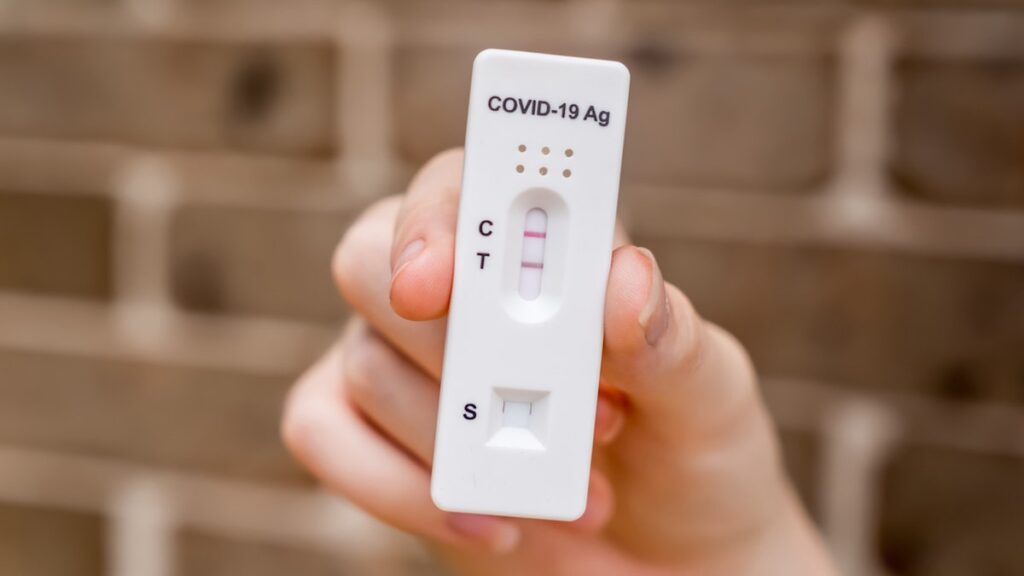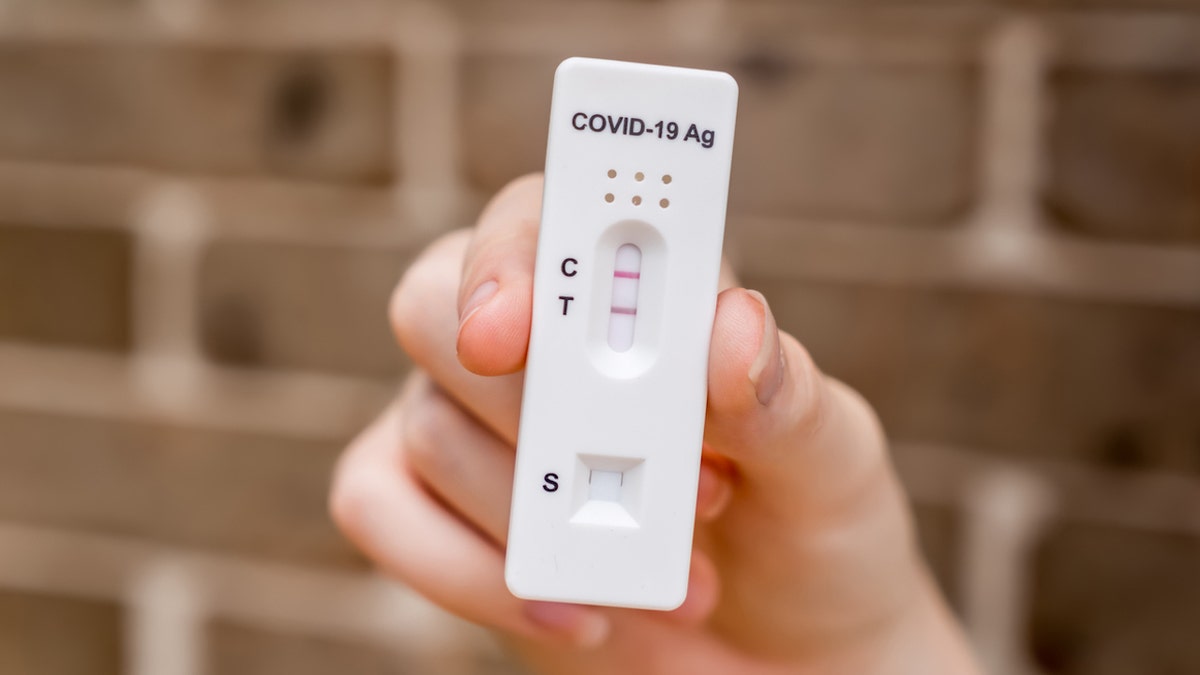
Navigating the Landscape of COVID Test Kits in 2024: What You Need to Know
As we move further into 2024, COVID-19 remains a persistent concern, and access to reliable COVID test kits is still crucial for managing personal and public health. The market for COVID test kits has evolved significantly since the pandemic’s onset, with a proliferation of options available, each with varying degrees of accuracy, convenience, and cost. This article aims to provide a comprehensive overview of the current state of COVID test kits, helping you make informed decisions about which test is right for you and your family. We’ll explore the different types of tests available, discuss their accuracy and reliability, examine the regulatory landscape, and provide insights into future trends in COVID test kits technology. Staying informed about COVID test kits empowers individuals to protect themselves and contribute to broader community health efforts.
Types of COVID Test Kits Available in 2024
The market offers a variety of COVID test kits, each employing different methodologies to detect the presence of the SARS-CoV-2 virus. Understanding these differences is key to choosing the appropriate test for your specific needs.
Antigen Tests
Antigen tests are rapid tests that detect specific proteins (antigens) on the surface of the virus. They are generally less sensitive than PCR tests but offer the advantage of providing results quickly, often within 15-30 minutes. These tests are commonly used for screening purposes and are readily available for at-home use. The ease of access and speed make antigen COVID test kits a popular choice, especially when frequent testing is required. However, it’s important to be aware of their potential for false negatives, particularly in individuals with low viral loads. [See also: Understanding the Accuracy of Rapid Antigen Tests]
PCR Tests (Molecular Tests)
Polymerase Chain Reaction (PCR) tests are considered the gold standard for COVID-19 detection. These tests detect the virus’s genetic material (RNA) and are highly sensitive, meaning they can detect even small amounts of the virus. PCR tests typically require laboratory processing, resulting in longer turnaround times for results. While generally more accurate, PCR COVID test kits are often more expensive and less convenient than antigen tests. They remain essential for confirming positive antigen test results and for diagnosing infections in individuals with symptoms but negative antigen tests.
At-Home vs. Laboratory Tests
COVID test kits are available for both at-home and laboratory use. At-home tests, primarily antigen tests, offer convenience and privacy but may require careful adherence to instructions to ensure accurate results. Laboratory tests, typically PCR tests, are performed by trained professionals and offer greater accuracy and reliability. The choice between at-home and laboratory COVID test kits depends on individual needs, access to testing facilities, and the level of accuracy required.
Accuracy and Reliability of COVID Test Kits
The accuracy and reliability of COVID test kits are paramount. Factors influencing accuracy include the type of test, the timing of the test in relation to infection, and the proper execution of the test. Understanding these factors is crucial for interpreting test results and making informed decisions.
Sensitivity and Specificity
Sensitivity refers to a test’s ability to correctly identify individuals who have the virus (true positive rate). Specificity refers to a test’s ability to correctly identify individuals who do not have the virus (true negative rate). High sensitivity and specificity are desirable characteristics of any COVID test kit. Regulatory bodies like the FDA require manufacturers to demonstrate the sensitivity and specificity of their tests before they can be authorized for use. Keep an eye out for COVID test kits with high reported sensitivity and specificity.
Factors Affecting Accuracy
Several factors can affect the accuracy of COVID test kits. These include:
- Timing of the test: Testing too early in the infection period may result in a false negative, as the viral load may be too low to detect.
- Proper sample collection: Incorrect swabbing technique or insufficient sample volume can lead to inaccurate results.
- Test storage and handling: Improper storage or handling of the test kit can compromise its integrity and accuracy.
- Emerging variants: Some variants may be more difficult to detect by certain tests.
It is essential to follow the manufacturer’s instructions carefully and to be aware of the limitations of each type of COVID test kit.
Regulatory Landscape and Approved COVID Test Kits
The regulatory landscape for COVID test kits is overseen by agencies like the Food and Drug Administration (FDA) in the United States and similar bodies in other countries. These agencies evaluate and authorize tests based on their safety, efficacy, and accuracy. Staying informed about authorized tests is crucial for ensuring you are using a reliable product.
FDA Authorization
In the United States, the FDA grants Emergency Use Authorization (EUA) to COVID test kits that meet specific criteria. The FDA website provides a list of authorized tests, along with information about their performance characteristics. Before purchasing a COVID test kit, it is advisable to check the FDA website to ensure it is authorized for use. [See also: FDA’s Emergency Use Authorization Process for COVID-19 Tests]
International Regulations
Other countries have their own regulatory bodies that oversee the approval and authorization of COVID test kits. It is important to be aware of the regulations in your specific region or country to ensure you are using a test that meets local standards. Many countries follow similar guidelines to the FDA, but specific requirements may vary.
Future Trends in COVID Test Kits
The field of COVID test kits is constantly evolving, with ongoing research and development focused on improving accuracy, speed, and accessibility. Several promising trends are emerging that could shape the future of COVID-19 testing.
Multiplex Assays
Multiplex assays are tests that can detect multiple respiratory viruses simultaneously, including COVID-19, influenza, and RSV. These tests offer a more comprehensive approach to diagnosing respiratory illnesses, allowing for faster and more accurate identification of the causative agent. This is particularly useful as we enter flu season alongside continued COVID-19 transmission.
Point-of-Care Testing
Point-of-care testing (POCT) refers to tests that can be performed at or near the patient, eliminating the need for laboratory processing. POCT COVID test kits offer the potential for faster results and improved access to testing, particularly in remote or underserved areas. These tests often involve simplified procedures and user-friendly interfaces.
Improved Accuracy and Sensitivity
Ongoing research is focused on developing COVID test kits with improved accuracy and sensitivity. This includes advancements in both antigen and PCR testing technologies. Scientists are working to develop tests that can detect even lower viral loads and that are less susceptible to interference from emerging variants.
Choosing the Right COVID Test Kit for Your Needs
Selecting the appropriate COVID test kit depends on several factors, including your individual needs, risk factors, and access to testing facilities. Consider the following factors when making your decision:
- Purpose of the test: Are you using the test for screening, diagnosis, or confirmation?
- Speed of results: How quickly do you need the results?
- Accuracy requirements: What level of accuracy is required for your specific situation?
- Cost: How much are you willing to spend on a test?
- Access to testing facilities: Do you have easy access to laboratory-based testing, or do you prefer at-home testing?
Consult with your healthcare provider to determine the most appropriate COVID test kit for your individual needs. [See also: Talking to Your Doctor About COVID-19 Testing Options]
Conclusion
Navigating the landscape of COVID test kits in 2024 requires staying informed about the different types of tests available, their accuracy and reliability, and the regulatory landscape. By understanding these factors, you can make informed decisions about which test is right for you and your family. As technology continues to advance, we can expect to see further improvements in COVID test kits, offering even faster, more accurate, and more accessible testing options. Regular testing, combined with other preventive measures, remains a crucial tool for managing the ongoing COVID-19 pandemic and protecting public health. The availability and reliability of COVID test kits are crucial in our ongoing efforts to combat the spread of the virus. Remember to always consult with healthcare professionals for personalized advice and guidance on COVID-19 testing and management. Access to affordable and accurate COVID test kits remains a key priority for public health organizations worldwide. The future of COVID test kits looks promising, with ongoing innovation aimed at improving accuracy, speed, and accessibility.

